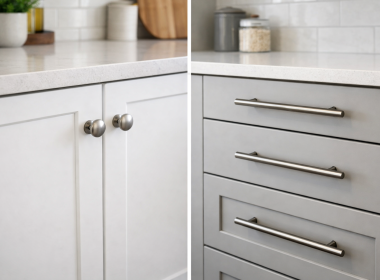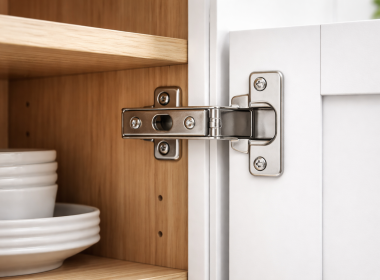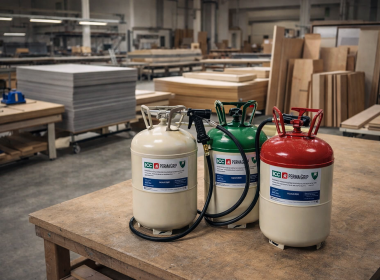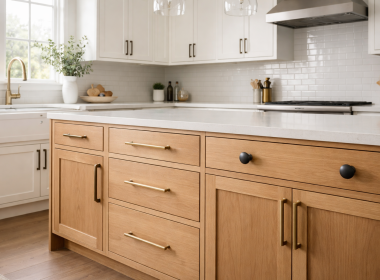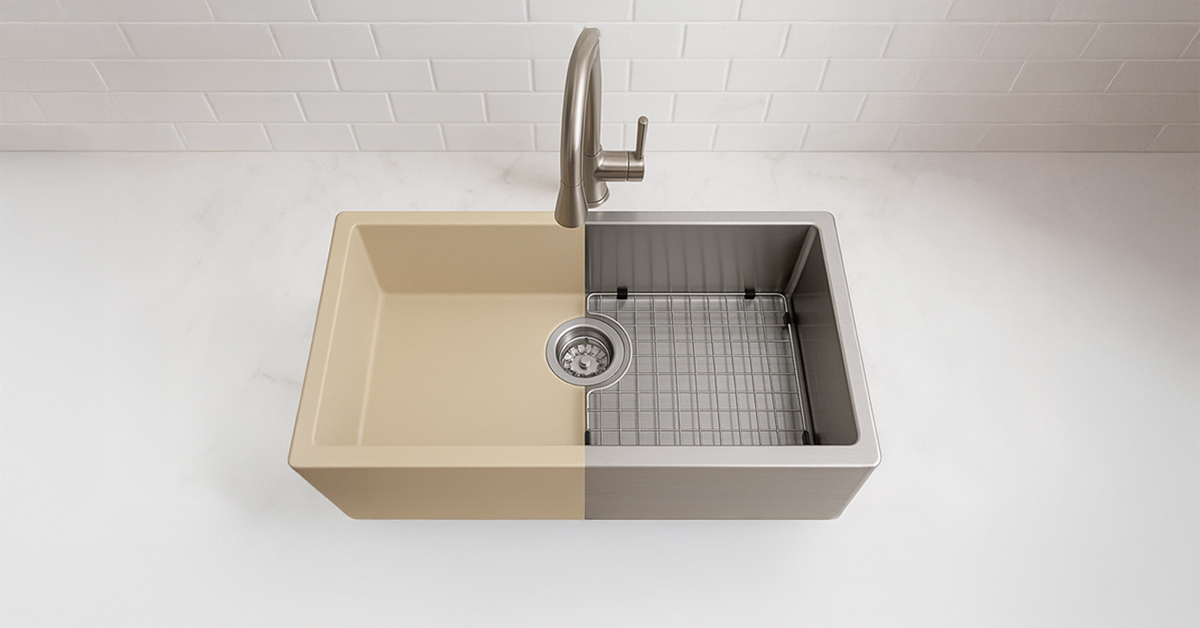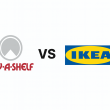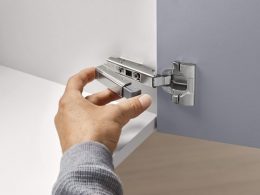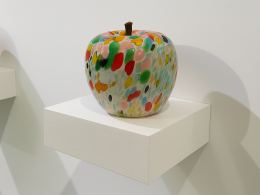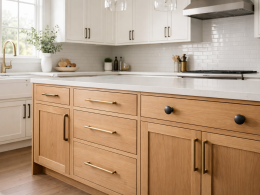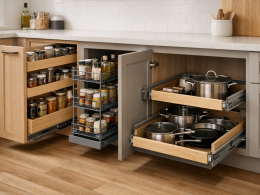Choosing between a quartz composite and stainless steel kitchen sink hinges on your priorities: cost and practicality or premium aesthetics and durability. Stainless steel offers a reliable, budget-friendly, and versatile solution favored by contractors. Quartz composite provides a durable, stylish, and design-forward upgrade beloved by homeowners. According to a 2025 NKBA design trends report, quartz sinks have seen a 35% surge in popularity for renovation projects. This Quartz vs Stainless Steel guide cuts through the noise to reveal 8 proven insights for making the right choice.
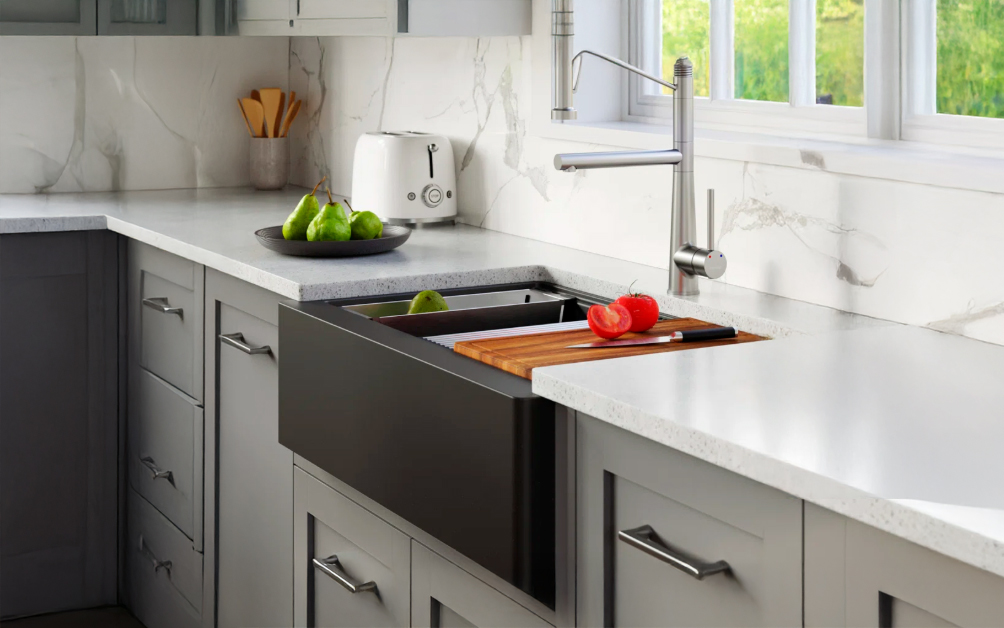
How Does Durability Compare Between Quartz and Stainless Steel Sinks?
Quartz composite sinks generally offer superior scratch and chip resistance, while stainless steel excels in heat tolerance.
A 2025 Consumer Reports durability study found that quartz composite sinks showed virtually no signs of wear from cutlery or heavy pots after rigorous testing, whereas stainless steel models were prone to fine scratches. For high-impact resistance in a busy family kitchen, quartz composite’s non-porous surface and extreme hardness make it a standout. However, stainless steel’s inherent resistance to thermal shock from sudden temperature changes remains a significant advantage for avid cooks.
Which Sink is Easier to Maintain and Clean Daily?
Quartz composite requires less frequent cleaning to maintain its appearance, while stainless steel is easier to sanitize completely.
Quartz’s non-porous surface resists stains from coffee, wine, and oils, requiring only simple soap-and-water cleaning. Stainless steel, while easy to sanitize, shows every water spot, fingerprint, and streak, demanding constant wiping to keep its shine. The August 2025 NSF International update confirmed that both materials, when properly cleaned, provide hygienic surfaces for food preparation, with no significant difference in bacterial resistance.
- Quartz Composite: Resists staining, hides water spots, low-maintenance matte finish
- Stainless Steel: Easy to sanitize but shows every smudge and water droplet
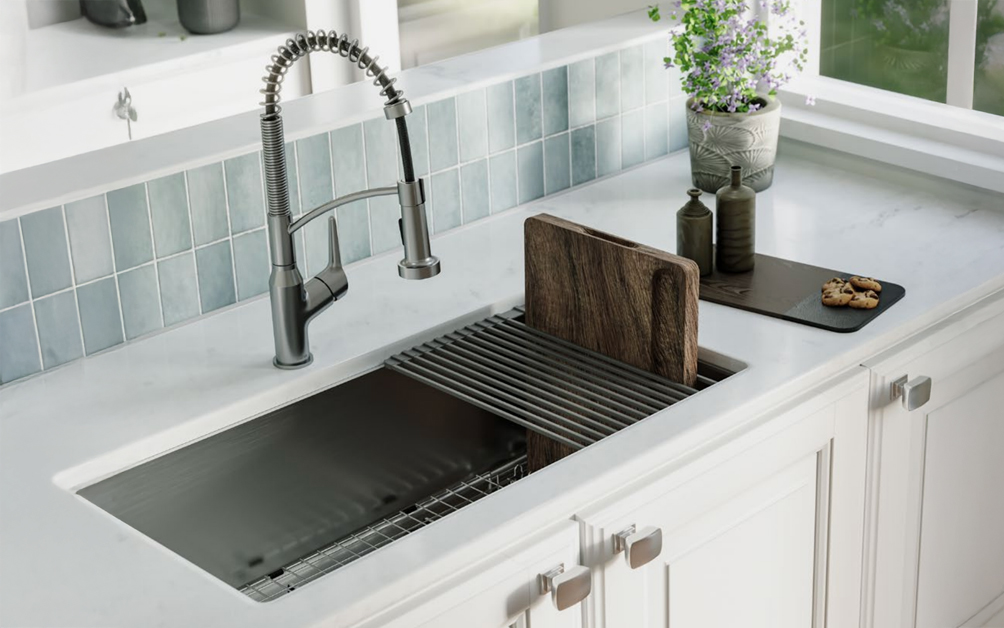
Quartz vs Stainless Steel, Which Sink Offers Better Design and Aesthetic Options?
Quartz composite provides far more color and design flexibility, while stainless steel offers timeless professional appeal.
With quartz composite sinks, you’re not limited to metallic finishes. Available in dozens of colors from classic black to bold blues, these sinks can blend seamlessly with your countertop for an integrated look or provide a striking contrast. Stainless steel maintains its position as a timeless choice that pairs perfectly with modern, industrial, and professional kitchen designs, available in various finishes from brushed to polished. Leading kitchen designers in 2025 are increasingly specifying quartz composite sinks for custom luxury homes where aesthetic cohesion is paramount.
Quartz composite sinks are significantly quieter than stainless steel when handling dishes and running water.
The dense composition of quartz composite (approximately 80% quartz granite and 20% acrylic resin) naturally dampens sound, minimizing the clanging and echoing common with metal sinks. Stainless steel’s thin gauge construction amplifies noise, though many manufacturers now include sound-dampening undercoating to mitigate this issue. For open-concept kitchens where noise carries, the acoustic benefits of quartz composite can substantially improve the cooking experience.
“The moment we switched to our quartz sink, the kitchen became noticeably quieter. No more jumping every time a pot clangs in the basin.” – Homeowner testimonial from August 2025 Kitchen Remodeling Survey
What Should You Know About Installation Requirements?
Stainless steel sinks are significantly easier to install, while quartz composite requires additional support due to its weight.
The lightweight nature of stainless steel makes it compatible with virtually all countertop materials and cabinet configurations, often allowing for straightforward DIY installation. Quartz composite sinks can weigh 2-3 times more than their stainless counterparts, frequently requiring reinforced cabinetry and professional installation to ensure proper support. Contractors surveyed in July 2025 reported that quartz sink installations typically add 15-20% to labor costs compared to standard stainless steel drop-in models.
Which Sink Provides Better Long-Term Value?
Stainless steel offers immediate affordability, while quartz composite delivers long-term durability and aesthetic value.
Entry-level stainless steel sinks can be found for under $200, making them accessible for budget-conscious renovations and rental properties. Quartz composite sinks represent a significant upfront investment ($400-$1,200+) but maintain their appearance better over time, potentially increasing home value in luxury markets. Real estate professionals note that in the 2025 market, high-end quartz sinks are becoming a expected feature in kitchen listings above $750,000, while stainless steel remains the standard for mid-range properties.
- Budget Choice: Stainless steel (16-18 gauge)
- Mid-Range: Thicker gauge stainless steel (14-16 gauge) with soundproofing
- Premium Choice: Quartz composite with integrated drainboard and custom colors
To master your sink selection in 2025, remember: choose stainless steel for professional-grade practicality and budget-friendly installation, opt for quartz composite for luxury aesthetics, superior durability, and noise reduction. For deeper insights, explore the National Kitchen & Bath Association’s 2025 Material Guide for the latest industry testing data.
Quartz vs Stainless Steel: Frequently Asked Questions
Which is better quartz or stainless steel kitchen sink?
The better sink depends on your priorities. Stainless steel wins for budget-friendly practicality and heat resistance. Quartz composite excels in durability, noise reduction, and design flexibility for upscale kitchens.
Do quartz composite sinks scratch easily?
No, quartz composite sinks are highly scratch-resistant due to their extreme hardness (approximately 7 on the Mohs scale). They outperform stainless steel in resisting scratches from cutlery and heavy pots.
Can you set hot pots directly on a quartz sink?
While quartz composite resists heat up to 535°F, sudden extreme temperature changes can cause thermal shock and potential damage. Always use trivets for very hot cookware to prevent cracking.
Which sink material is most hygienic?
Both materials offer excellent hygiene when properly cleaned. Stainless steel’s non-porous surface is easy to sanitize, while quartz composite resists staining and doesn’t require harsh chemicals for maintenance.


